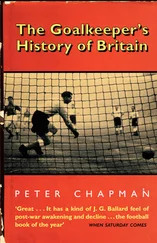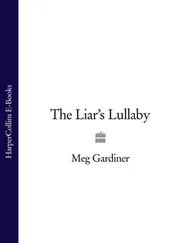The camps were clearly authoritarian, with many, it was claimed, overseen by ‘civilian sergeant-majors, retired police officers, ex NCOs of the army and officials transferred from the Poor Law Institutions’. But the most numerous complaints seem to have been about the food — stale bread, leathery meat, sandwiches ‘with bread an inch thick, with a piece of cheese in between that a mouse wouldn’t get up for … when the men used to be working among the fir trees they’d gnaw the resin off the trunk … and pick wild mushrooms and eat them raw, they were that hungry,’ reported William Heard, a West Ham man with a wife and five children who was sent to Shobdon camp in Herefordshire.
‘I still don’t know what we learned … it was a waste of time. The only thing was it took us away from something I suppose,’ thought Heard (who featured in an NUWM pamphlet, Slave Camps) . But Alwyn Jones, who was sent to a camp in Suffolk from Oldham, felt ‘so much rot is talked about the camps’ that he wrote an article for his local paper extolling their virtues. ‘A man gets four shillings a week, and of course his wife and children draw if they are unemployed while he is away. He has the best food he ever ate [four meals a day], a bed, and clothes and medical attention if necessary … in beautiful surroundings.’
Although camps continued to open throughout the 1930s, judged by results they were not particularly effective. Of a total intake of 83,000 ‘volunteers’ between 1935 and 1938, only 12,500 subsequently found employment: 19,500 either gave up or were sacked during the twelve-week course. The last one closed in 1939, and several were converted to house prisoners of war.
The National Government had inherited the notion of transference schemes and training camps, but one initiative of its own was the introduction in 1934 of the Special Areas (Development and Improvement) Act, in recognition of the fact that there was little hope of a sufficient upswing in world trade to bring jobs back to the areas of the old staple industries — coal, iron, steel, shipbuilding. Four special investigators were appointed to examine conditions in the worst-hit areas: Scotland, West Cumberland, Durham and Tyneside and South Wales. Their reports confirmed what the government must have known already: that while trade was beginning to revive in the Midlands and the South-East, massive unemployment persisted in the depressed areas, with no real prospect of improvement. Parts of South Wales were described as ‘derelict’, with 39,000 men and 5,000 boys ‘surplus to requirements’, there was a permanent labour ‘surplus’ in the depressed areas of Scotland, and Durham bore out the claims of a series of influential articles in The Times in March 1934 which described the area as ‘Places Without a Future: Where Industry is Dead’.
Alongside advertisements for Rolls-Royce, Bentley and Talbot luxury cars, holidays in the Hôtel du Palais in Biarritz, which offered ‘Casino-Golf’, a broadtail fur coat with a white fox-fur collar on sale at Jays of Regent Street for forty-nine guineas, and a long list of the wedding presents received by Mr Walter Elliot MP and Miss Katharine Tennant, the ‘Special Correspondent’ (who had reported on the ‘stricken areas’ of South Wales in 1928) explained that ‘There are districts of England, heavily populated, whose plight no amount of trade recovery can ever cure because their sole industry is not depressed but dead.’ The articles spoke of places where the ‘pits are not only closed but abandoned, the works not only shut but dismantled’, of families who had had ‘no proper spell of work for eight years … people living on the very margin … everything superfluous has been pawned or sold … and the necessities of life are largely worn out or broken … shops are shut and boarded up … You may even see the rare sight of a pawnshop closed … the men are not starving, but they are permanently hungry.’ Alongside stark photographs of mining villages such as Spennymoor and Escombe with their slag heaps, rubble and long, empty, derelict streets making them look truly like war zones, the article declared, ‘It would be a failure of humanity to forget them, a failure of statesmanship to ignore them.’ An editorial concluded the grim series with a call for the appointment of a director of operations charged with rehabilitating the workforce and reviving the economies of the depressed areas.
Ramsay MacDonald responded by impressing on the Minister of Labour, Henry Betterton, ‘the importance of doing something to meet The Times leaders, and the growing chorus in the Commons’. Neville Chamberlain, the Chancellor of the Exchequer, agreed, but thought it was essentially ‘not a question of spending a great deal of money, but of showing that the matter had not been pigeon-holed’.
Eight months later the Depressed Areas Bill (its name was later changed by the House of Lords to the Special Areas Bill at the behest of the people of Tyneside, who found the title disparaging) was reluctantly introduced into Parliament. It proposed two full-time, unpaid Commissioners for the areas, one for England and Wales, the other for Scotland. Their budget was £2 million, and their remit was strictly limited — there must be no suggestion that ‘a sort of financial hosepipe designed to pour assistance into the districts’ was being uncoiled, or that this was the thin edge of a public-works wedge. Grants could be given to local authorities and to voluntary agencies such as the NCSS in the Special Areas to initiate or subsidise amenities such as water supplies, sewerage schemes, drainage and sanitation, hospitals, children’s playgrounds, football pitches or open-air swimming pools, and some money was made available for ‘back to the land’ initiatives such as smallholdings, co-operative farming projects and afforestation schemes — though an imaginative plan for a Welsh national park based on the American model was turned down.
One problem was that the Act was at total variance with the labour transference policies which various governments had been pursuing since the 1920s. As a Ministry of Labour official put it, government initiatives should ‘neither waste sympathy nor public funds on any activity which may anchor or attach young or middle-aged people more firmly to the depressed areas’. The ‘Get on your bike’ attitude which has resonated for the right down the decades as a legacy of the ‘hungry thirties’ was expressed in the words of the National Government’s Chief Industrial Advisor, Horace Wilson: ‘The people who wish to work must go where the work is.’
The Act’s narrow scope and the limited funds available made it seem little more than a gesture, and it drew criticism from the press and across the political spectrum. The Mayor of Newcastle regarded it as ‘a flea bite, a sop’; to Aneurin Bevan it was ‘an idle, empty farce’, a mere palliative offering ‘a bit of colour-washing colliers’ cottages’ in the hope of attracting new industry (as had already happened at Brynmawr). Lloyd George damned the Act as ‘patching’ and ‘peddling hope’, while Harold Macmillan, with patrician languor, ridiculed it as ‘Parturiunt montes: nascetur ridiculus mus . The mountains have been in labour and there has been born a mouse … a nice mouse, a profitable and helpful little mouse, but a ridiculous, microscopic, Lilliputian mouse.’
Other depressed areas such as Manchester and Lancashire lobbied to be ‘special’ too, since they too had moribund industries and high unemployment. By 1936, when the Commissioner for England and Wales, Sir Malcolm Stewart, who had been particularly disappointed at the failure to build a bridge across the Severn, which had first been mooted in the 1840s (but which did not happen until 1965), resigned, ostensibly on health grounds, he admitted that ‘No appreciable reduction in the number of unemployed has been effected.’ A survey of 5,800 firms that he had undertaken in 1935 showed that only eight would even consider investing in the Special Areas. They gave their reasons as inaccessibility, high local taxes, low consumer purchasing power and high rates of trade union membership. The powers of the Commissioners were increased by an Amendment to the Act in 1937 which meant that rates, rent and taxes could be remitted for industries starting or relocating to the Special Areas, and trading estates were set up with all facilities laid on in which firms could lease premises. It was also agreed that ‘steps should be taken to prevent further industrial concentration round London and the South’ by diverting industry to areas of heavy unemployment. The Commissioners’ budget was increased annually, so that by 1938 they were allowed to spend £17 million. Nevertheless, fewer than 50,000 new jobs were created under the Special Areas legislation.
Читать дальше












